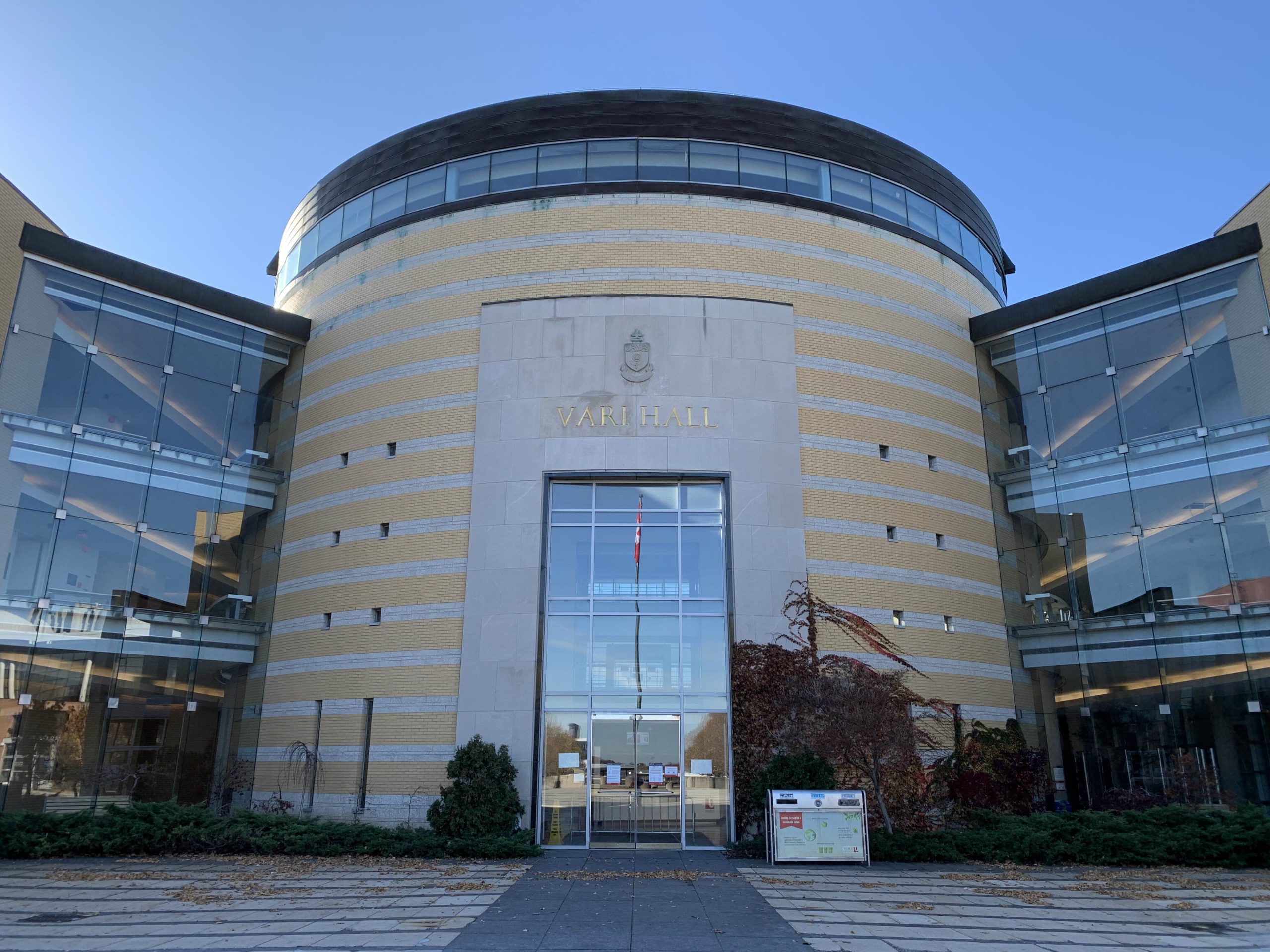Various universities across Ontario recently reported they have extended their winter break for students, including the University of Toronto (U of T), Western University, and McMaster University.
U of T, among others, cited pandemic-related stressors, burnout, and curbing the spread of COVID-19 being the reasons for their winter break extension.
Although York’s announcement to students was delayed and the community received an email yesterday, the 2020-2021 Important Dates webpage has outlined that winter classes will resume on January 11, 2021 for the past year. According to York’s Deputy Spokesperson Yanni Dagonas, this extension was already set to take place prior to the COVID-19 pandemic.
The university will be closed over the holiday period and restricted operations under Toronto Public Health guidelines will resume on January 7, 2021.
“I would like to take this opportunity to remind everyone to please not come to campus during the closure period,” adds Dagonas. “Very few limited exceptions apply, such as students in residence or research that cannot be postponed.”
The feedback from most students was positive and the news was met with relief. The fall term was challenging for post-secondary institutions with many students stating they experienced burnout and stress.
“I actually didn’t even know about the extended winter break,” says Brittany Ramgolam, third-year professional writing student. “It gives me more time to relax after the mess of a semester that I’ve just been through.”
Although, Ramgolam notes that students are still “paying the same, even more, for our education.”
Second-year marketing student Anuneet Kaur says this year was the first year she experienced burnout, also expressing relief about the extension and stating it will give students time to begin the winter semester with a fresh mindset.
“Being a full-time student and working part-time while making sure to be on top of my school work has got me, and others like me, on the edge of burnout and eventually leading to a lot of mental breakdowns,” says Kaur.
Echoing Kaur’s sentiments is third-year business administration student Khalid Desai: “An extended winter break this year really ensures the health and safety among students at this time, along with slowing down any form of severe fatigue associated with school obligations.”
However, despite the positive reactions to York’s extended winter resume date, Majeed Zabsonre, Founders College council president and third-year sociology student, states that students should have been informed earlier.
“ … the university doesn’t always release information right when they get it.”
“I’m happy the university did it, but the one thing about being a college president and dealing with the university on certain matters and issues is that the university doesn’t always release information right when they get it,” states Zabsonre.
“This would have been a great opportunity for administration to reach out to students, like an olive branch, which would make the university seem less like an institution, but rather a place for learning and prospering.”
Zabsonre states that he did not know about the winter break extension until Excalibur reached out to him on December 3. “I meet with a lot of university administration once in a while, so something like that to kind of go under the radar is not good.”
Among other student leaders who are concerned about the university’s delayed notice to students is Ammon Cherry, president of the Environmental and Urban Change Student Association (EUCA) and fourth-year environmental studies student.
“I didn’t know the winter break was extended before the pandemic. I think now more than ever we need a longer break because the pandemic brought on a lot of mental and physical stress for a lot of people,” says Cherry.
Although Cherry is pleased that the extension will contribute to mitigating pandemic stressors, especially for burnt out faculty and staff as well, “informing the community faster is something that York needs to be better at. They need to let the community know exactly what’s going on. If they make a decision, it should be publicized and passed on to student leaders — make it known to everybody.”
“It would have been great for them to let the college presidents know, like myself and others, because we meet all the time. We would have spread the word on behalf of the university,” says Zabsonre.
New College Council President, and third-year communications student, Maritza Mohammed states: “Many students are probably not aware of this decision. The school website has a lot of information and important dates aren’t always easy to find or students are not aware that the page exists in the first place.”
Mohammed explains that the semester’s increased workload, lack of motivation, and socializing have made being proactive difficult.
While U of T also credits student demand for their extension this year, and Ryerson cites “time with family and friends, to decompress and rest,” Dagonas adds that “last year, York extended the winter holiday closure period to allow our community more time to be with family and prepare for the new year.
“This year, the restrictions caused by the COVID-19 pandemic has created a great deal of uncertainty that is especially acute for those who have to adjust to online/virtual formats.”
Reading week (February 13-19) will not be affected , and the final day of classes remains April 12, 2021.
“The members of our community have more than earned a few extra days to rest and recharge. We should also give special thanks to all the staff who are required to work through the closure period,” says Dagonas.
CORRECTION AND UPDATE: An earlier version of this article mentioned that York University had yet to make an official announcement about the winter break extension to students at the time of publication; this was written before York released its email announcement to students on December 4. This article has since been updated and corrected.

